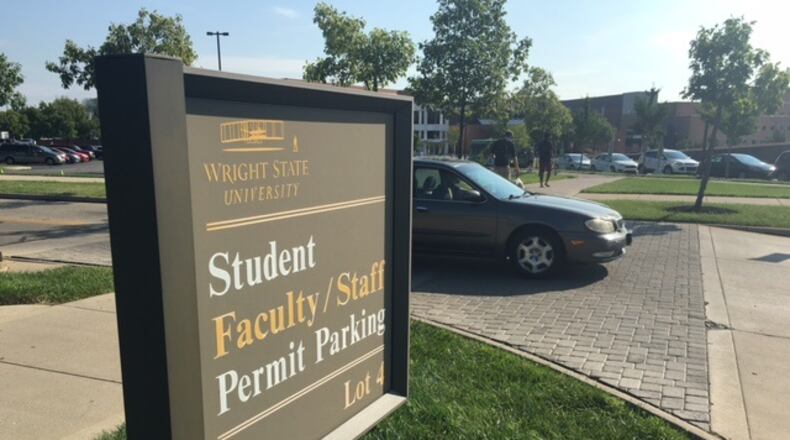The first case included named plaintiffs and named alleged perpetrators that said a team culture of "mutual horseplay and banter" included a ritual that involved poking teammates in the rectum.
The second case features a “John Doe” that WSU attorneys said was a “main source” of racist and homophobic verbal abuse heaped on freshman players and that Doe also participated in the alleged hazing ritual.
The memorandum in opposition to Doe’s status also alleged that he egged on other upper-class team members to “get the freshmen,” allegedly called an African American freshman teammate homophobic and racist slurs, including that the teammate “can’t swim, he’s black,” and “I bet (his) favorite meal is fried chicken, watermelon, and grape Kool-Aid.”
The investigation resulted in the expulsion of seven of nine men’s tennis team members — including Doe — and the cancellation of the Raiders’ spring 2016 season.
In the complaint, Doe’s attorneys wrote that disclosing the plaintiff’s identification “will cause the student irreparable harm as this case involves matters of the utmost personal intimacy.”
In response, WSU’s attorneys wrote: “Now, Doe, is trying to hide behind the cloak of anonymity while accusing WSU and its officials by name of intentionally violating the law” and argued the plaintiff had “not given sufficient reasons to proceed under a pseudonym.”
Wright State attorneys wrote that “Doe is not a child” and indicated he was a university sophomore and that he was “older than the teammates who accused him of improper sexual touching and racist and homophobic slurs.”
WSU also wrote that the “risk that a plaintiff may suffer some embarrassment is not enough” to justify court permission to proceed anonymously.
The memo said Doe admits to “horsing around,” but denies he did anything improper and that he also denies using racist and homophobic language.
Wright State’s attorneys wrote that “WSU’s recruitment and retention of students and student athletes could be tarnished by findings that it did not take allegations of hazing and sexual misconduct seriously” and that allowing Doe to continue anonymously would be unfair and prejudicial.
The memo said Doe accepted “the privilege of accepting an offer to compete in Division I university athletics” and that Doe said the value of such is $30,000 per year.
.
“Doe accepted the scholarship money, praise and recognition associated with athletic accomplishments, and did not take steps to prevent WSU from publicizing his background information or positive information about him,” WSU wrote. “He should not now be permitted to hide when he has been found to have abused the privilege.”
About the Author
